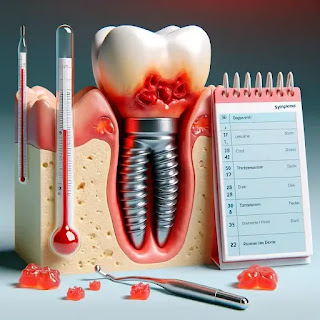Identifying Dental Implant Rejection and Its Associated Risks
Understanding Risks and Recognizing Early Signs of Complications
Dental implants, while offering a durable solution for tooth restoration, carry certain risks. Their success hinges on various factors, such as the patient's overall periodontal health, smoking status, and adherence to oral hygiene practices. Notably, patients with unmanaged periodontitis are at a heightened risk of postoperative complications. One of the leading causes of implant failure is peri-implantitis, an infection that can lead to significant bone loss around the implant site.
This inflammatory condition can arise from several sources, including inadequate oral hygiene, uncontrolled diabetes, or infrequent dental check-ups. Although relatively rare, patients should be vigilant for symptoms indicating potential issues with their implants:
Persistent Discomfort: Continuous pain upon applying pressure to the implant area, which doesn't improve over time, can signal underlying problems.
Ongoing Inflammation: Chronic swelling may be symptomatic of an infection, necessitating an evaluation for peri-implantitis.
Implant Movement: Any sensation of the implant or prosthetic shifting during healing warrants immediate dental consultation.
Additional concerns that might provoke implant rejection include substandard implant materials, difficulties in osseointegration, or existing dental health issues.
Postoperative Care: Key to Successful Implant Integration
Post-implant care is pivotal for preventing complications. Here are several post-surgery guidelines for optimal recovery:
Managing Swelling: Apply cold compresses externally and consult your dentist about the need for pain relievers or anti-inflammatory medications.
Dietary Adjustments: Stick to soft foods and steer clear of extreme temperatures to safeguard the affected area.
Avoiding Tobacco and Alcohol: Refrain from smoking and alcohol consumption, as these can hinder the healing trajectory.
Meticulous Oral Hygiene: Maintain a stringent oral care routine, using an ultra-soft toothbrush as directed by your dentist.
Rest and Positioning: Forego strenuous activities for the week after surgery and keep your head elevated while sleeping.
Regular Follow-ups: Never skip postoperative appointments to monitor the healing process and the implant's integration.
Adhering to these aftercare instructions is vital for the enduring functionality of dental implants, ensuring a resilient and aesthetically pleasing smile.

